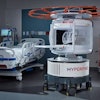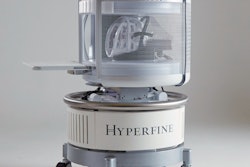Dear Artificial Intelligence Insider,
Treatment decisions for patients with non-small cell lung cancer are typically based on molecular biomarker information acquired via biopsy. But the combination of radiomics and artificial intelligence (AI) may be able to capture this information noninvasively on PET/CT exams.
In a presentation this week at a virtual conference held by the American Association for Cancer Research, researchers shared how AI could be highly accurate for predicting the status of two key molecular biomarkers. Our coverage of this research is the subject of this edition's Insider Exclusive.
In other late-breaking news, the U.S. Food and Drug Administration (FDA) has published its action plan for medical AI algorithms. The agenda includes updates to the FDA's proposed regulatory framework from 2019, a push to harmonize development of good machine-learning practices, continued support for regulatory science research initiatives, and advancement of pilot programs for real-world performance monitoring.
Some legal scholars have expressed concern that questions over potential liability could hold back adoption of AI software for personalized medicine. But a new study has concluded that those who follow the software's advice may actually be shielded from medical malpractice liability.
In women's imaging, AI has been found to significantly improve the false-positive rate of screening breast ultrasound. A deep-learning model was also able to detect breast cancer on screening mammography as early as two years before it was identified during conventional interpretation.
Also, an AI algorithm yielded better results than traditional risk assessment tools for assessing breast cancer risk. Furthermore, AI software could also help cut down on the number of interval breast cancers and obviate the need for a second radiologist to review a mammogram in more than 80% of exams performed for a national breast cancer screening program.
A multinational team of researchers reported that their AI algorithm can predict the presence of occult peritoneal metastasis in gastric cancer patients based on preoperative CT scans. In addition, a machine-learning algorithm based on CT radiomics may help clinicians forecast the severity of COVID-19 disease and patient outcomes.
A deep learning-based risk prediction model that analyzes chest x-rays and medical record data can improve assessment of patient eligibility for CT lung cancer screening. When used as a second reader, an AI algorithm could also improve the performance of radiologists for detecting lung cancer on chest radiographs.
AI analysis of body composition metrics on abdominal/pelvic CT exams can yield prognostic information for survival in lung cancer patients. What's more, an algorithm that automatically calculates body composition metrics from abdominal CT exams may be valuable for evaluating a patient's risk for future major cardiovascular events. Also, a machine-learning model can predict major adverse cardiac events based on analysis of coronary CT angiography exams.
MRI radiomics features extracted by machine-learning algorithms can preoperatively predict axillary lymph node metastasis as well as disease-free survival. In addition, a CT radiomics-based algorithm offered better preoperative risk classification of complex cystic renal lesions than just relying on the traditional Bosniak classification criteria.
A deep-learning model can help flag large-vessel occlusions on head and CT angiography studies, potentially helping to improve outcomes in these stroke patients. AI can also detect and quantify regions of free air on CT images, enabling patients with these critical pathologies to be prioritized on the radiology worklist.
The generalizability of deep-learning algorithms remains an important issue in radiology AI. But training algorithms with a federated-learning approach could help to address this challenge. In case you missed it, Michael J. Cannavo, aka the PACSman, also announced the RSNA 2020 edition of his always entertaining PACSman awards.
Do you have an idea for a story you'd like to see covered in the Artificial Intelligence Community? Please feel free to drop me a line.




















